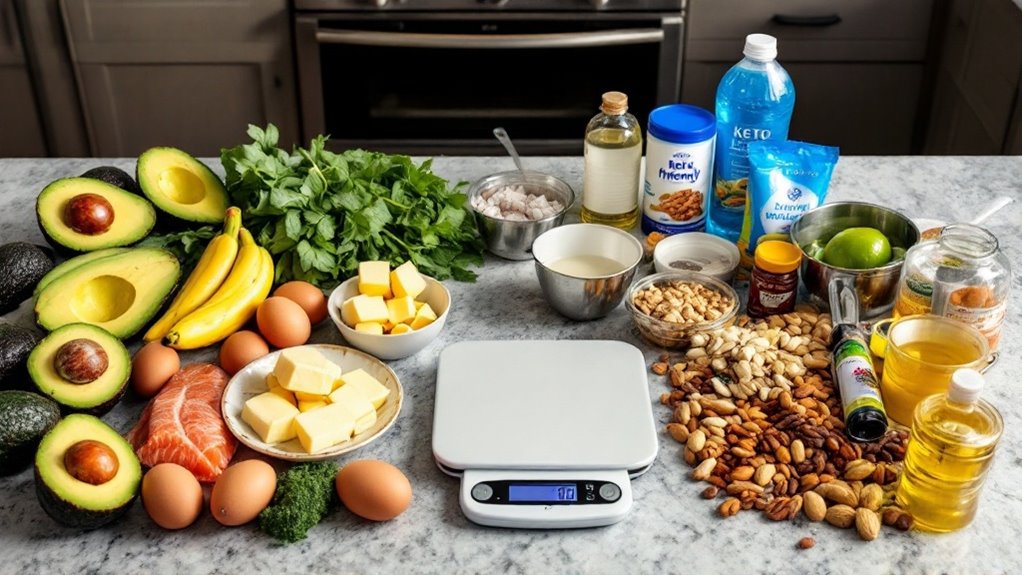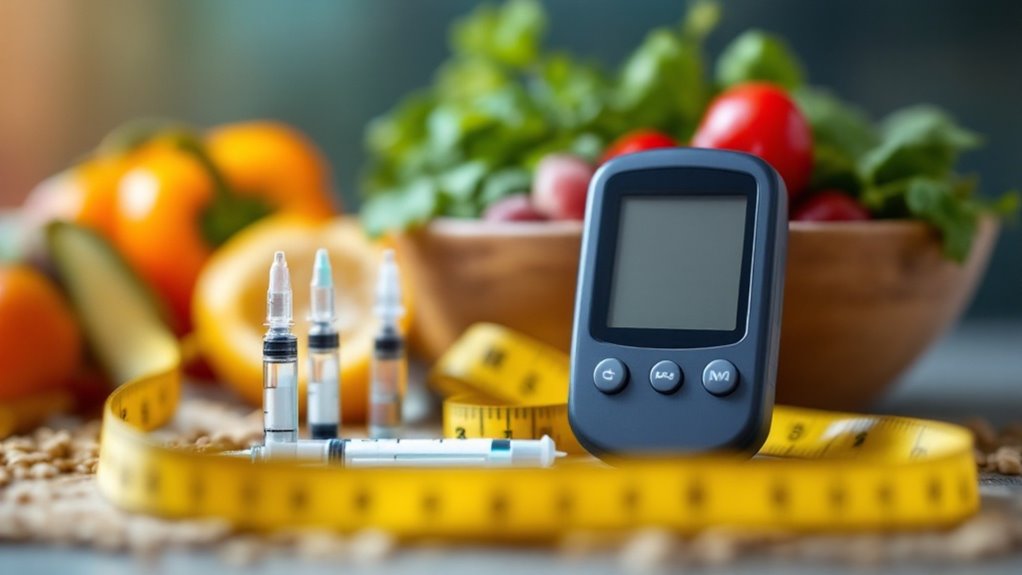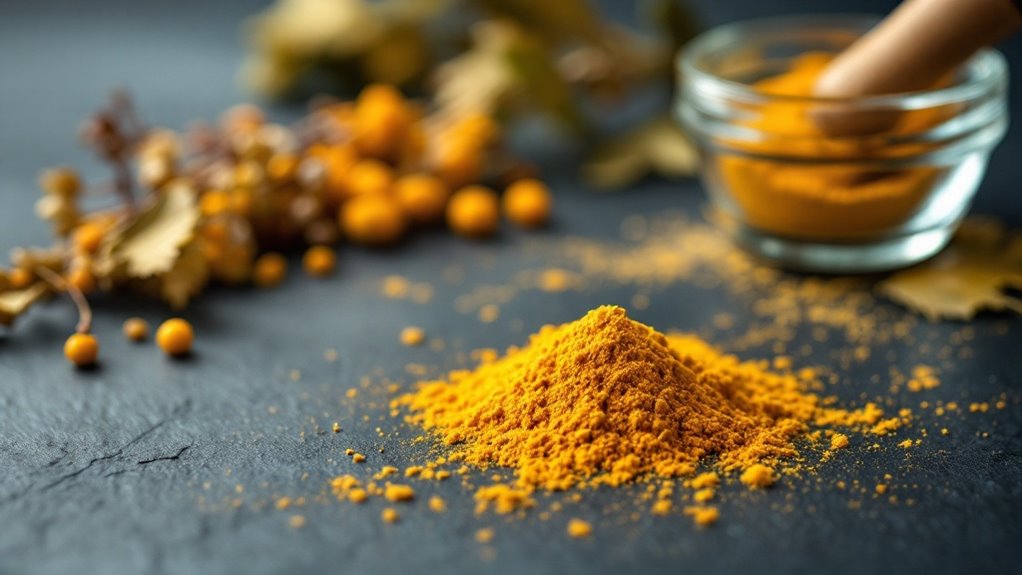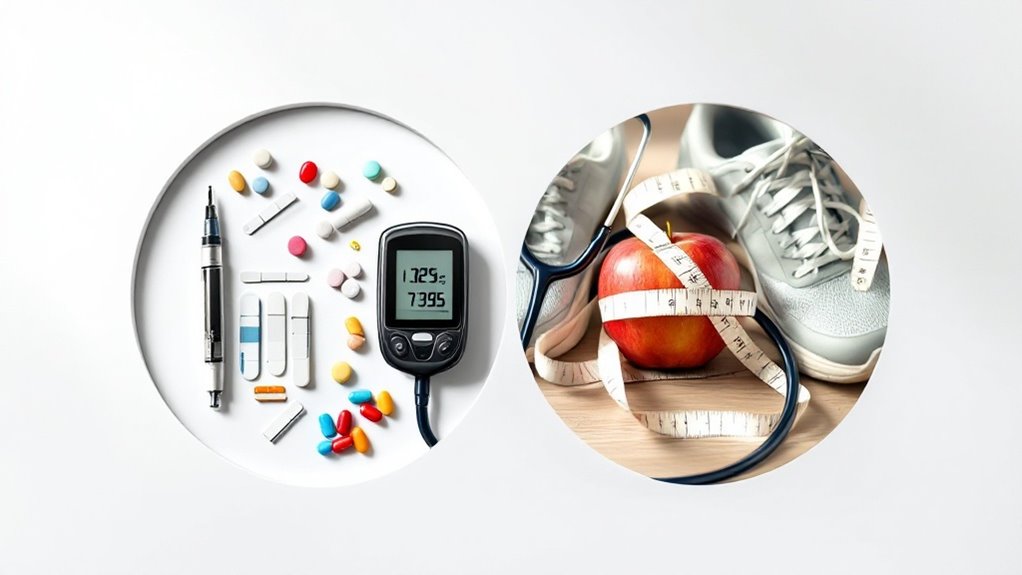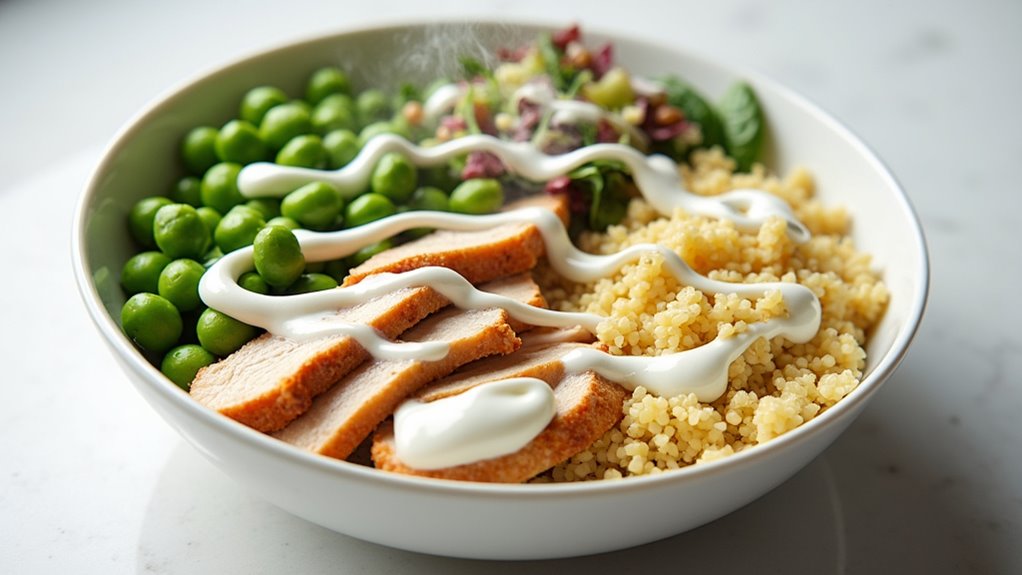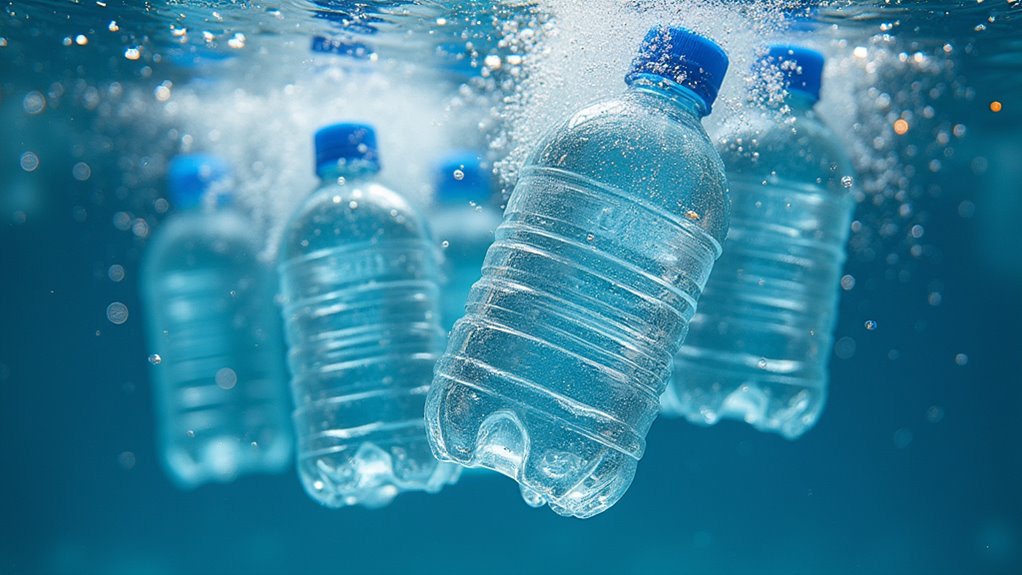Starting keto without medical guidance is asking for trouble. Common blunders include eyeballing portions (rookie mistake), ignoring hidden carbs in dressings, and thinking processed junk fits the bill just because it matches macros. Keto flu hits hard when electrolytes aren’t prepped, and “winging it” leads straight to failure. Smart dieters track everything, prep meals religiously, and stick to whole foods. The path to ketosis success requires more than just cutting carbs.
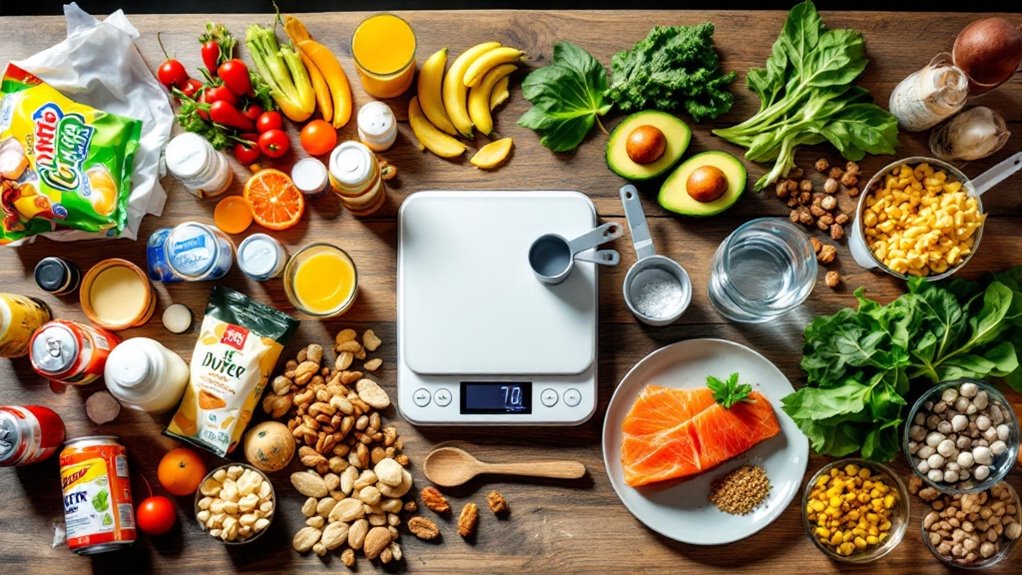
Steering through the ketogenic diet can feel like walking through a minefield of potential mistakes. People jump into keto with enthusiasm but often stumble on basic hurdles that could easily be avoided.
Let’s be real – starting this diet without consulting a doctor is like skydiving without checking your parachute. Not smart.
One of the biggest blunders? Getting those macro ratios wrong. Too many folks eyeball their portions, completely miss hidden carbs lurking in seemingly innocent foods, and wonder why they’re not in ketosis. Achieving the proper ratio means aiming for 70-80% fat intake daily. Meal prepping is crucial, as batch cooking helps you stay on track and avoid impulsive food choices.
Understanding how insulin levels affect your metabolism is crucial for success on keto. Surprise! That “healthy” salad dressing just kicked you out of fat-burning mode. And don’t even get started on people who think they can wing it without a macro tracker. Good luck with that.
Then there’s the dreaded keto flu – the diet’s unwelcome initiation ritual that catches many off guard. Headaches, fatigue, and feeling like you’ve been hit by a truck aren’t exactly fun.
Yet people keep making the rookie mistake of not preparing for it. Here’s a novel idea: stock up on electrolytes before your body starts screaming for them. And maybe don’t plan that marathon during your first week of keto.
Speaking of electrolytes, the number of people who think they can chug plain water and call it a day is astounding. Newsflash: your body needs sodium, potassium, and magnesium more than ever on keto.
Dark urine isn’t a badge of honor – it’s a sign you’re doing it wrong.
Quality matters too, but some people treat keto like a free pass to load up on processed junk as long as it fits their macros.
Sure, those “keto-friendly” packaged foods might keep you in ketosis, but they’re about as nutritious as cardboard. Loading up on processed vegetable oils and artificial sweeteners while ignoring nutrient-dense whole foods is a one-way ticket to feeling terrible.
The solution? Keep it simple with real food. Revolutionary concept, right?
Frequently Asked Questions
How Long Does It Take to Reach Ketosis When Starting the Diet?
Reaching ketosis typically takes 2-4 days, but individual results vary wildly.
The body’s starting point matters – former carb addicts might need longer than low-carb veterans. Keep carbs under 50 grams daily to speed things up.
Metabolic rate plays a role too. Age, activity level, and even genetics affect the timeline.
Some lucky folks hit ketosis in 24 hours. Others? A week of carb-free suffering.
Can I Drink Alcohol While Following a Ketogenic Diet?
Yes, drinking alcohol is possible on keto, but it’s tricky business.
Hard liquors and dry wines are the safer bets – they’re low in carbs.
But here’s the kicker: alcohol hits harder on keto due to depleted glycogen stores.
Plus, it pauses fat burning while your body deals with the booze first.
Want to drink? Fine. But stick to clear spirits, stay hydrated, and eat beforehand.
Your hangover will thank you.
What Happens if I Accidentally Eat Too Many Carbs One Day?
Eating too many carbs will kick you out of ketosis – simple as that.
The body switches back to burning glucose instead of fat. Expect some not-so-fun side effects: headaches, fatigue, and those pesky sugar cravings might return.
Getting back into ketosis takes time – anywhere from a few days to weeks.
Best move? Get right back on track. No guilt trips needed. Just resume strict keto eating.
Are Ketone Supplements Necessary for Success on the Keto Diet?
Ketone supplements aren’t necessary for keto success – period.
The body naturally produces ketones when following the diet correctly. These supplements might help reduce keto flu symptoms or speed up ketosis, but they’re more of a luxury than a requirement.
Some people swear by them, but research is limited. Save your money for quality whole foods instead.
The old-fashioned way works just fine: restrict carbs, eat right.
How Do I Maintain Muscle Mass While Following a Ketogenic Diet?
Maintaining muscle on keto isn’t rocket science. Regular strength training, combined with adequate protein intake (but not excessive – that’s a rookie mistake), forms the foundation.
Smart lifters track their macros religiously and stick to nutrient-dense foods. Creatine supplementation helps.
The key? Patience during adaptation. The body needs time to become a fat-burning machine while preserving those hard-earned gains.
